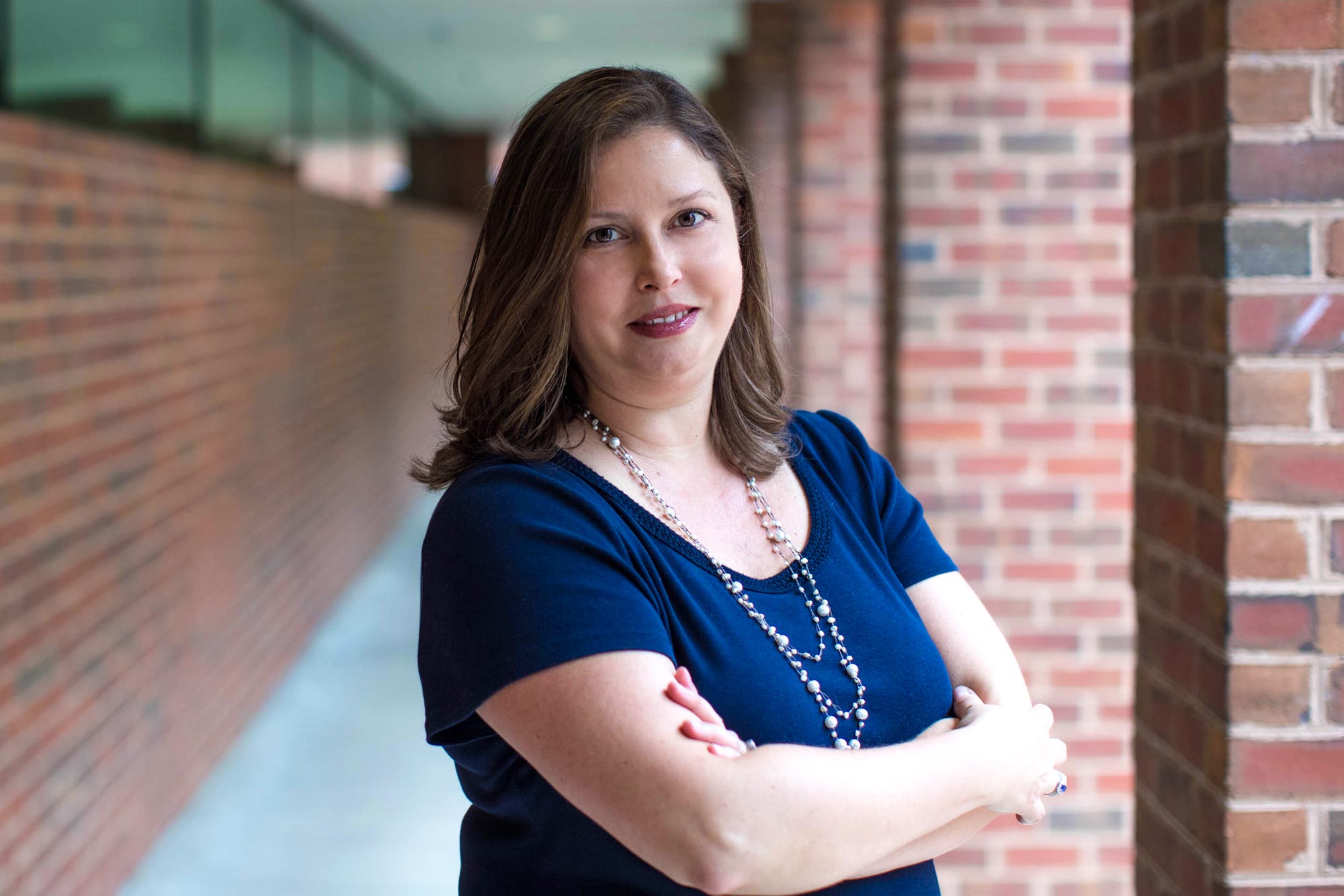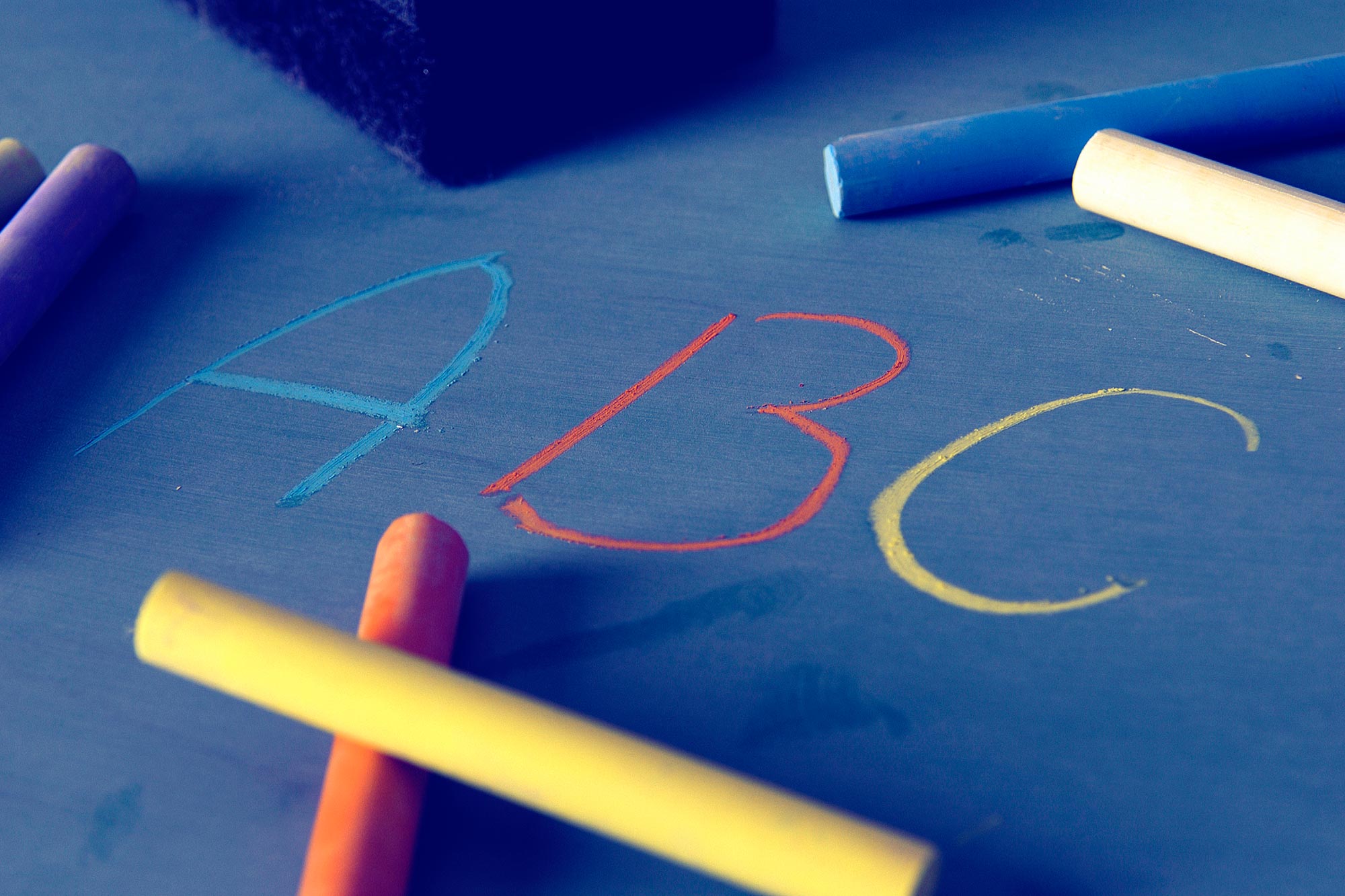Amanda Williford developed an interest in helping young children learn and thrive in school as an after-school teacher in her mother’s early childhood center, where she saw firsthand the value of giving young children high-quality learning experiences.
Now, more than a decade later, Williford is a research associate professor at the University of Virginia’s Curry School of Education, where she is leading the way in helping Virginia roll out the comprehensive Kindergarten Readiness Program – a battery of readiness assessments for incoming kindergarteners, including measures of students’ math and literacy skills, self-regulation and social skills.

Education professor Amanda Williford’s program to assess kindergarten readiness is about to be implemented across Virginia. (Photo by Sanjay Suchak, University Communications)
Piloted in 2014, the program is now headed into its third year in partnership with the Virginia Department of Education and will be implemented at scale across the commonwealth this fall.
Williford recently discussed the need for such a program.
Q. What is Virginia’s Kindergarten Readiness Program about?
A. Virginia’s Kindergarten Readiness Program is an assessment system designed to help schools have a good understanding of where children are in their learning as they enter kindergarten. It measures a child’s readiness across four areas: math, literacy, social skills and self-regulation. What support will a child need to be successful in school? We can’t know that if we don’t have a good understanding of where they currently are.
Q. On a national level, where does Virginia stand in terms of assessing children’s kindergarten readiness?
A. Right now, Virginia is a little behind because the only consistent measure used by all school divisions, the Phonological Awareness Literacy Screening, focuses solely on children’s literacy skills. In essence, Virginia has good information about children’s literacy skills as they enter kindergarten, but there is clear consensus that children need foundational skills across a wider range of early learning domains, like math, social skills and self-regulation.
Across the U.S., many states have kindergarten entry assessments that measure these multiple facets of learning. The Virginia Kindergarten Readiness Program is working to follow suit.
Q. In assessing kindergarten readiness, one of your goals has been to include a focus on assessing a child’s social-emotional development, in addition to academic skills. Why do you think that’s important?
A. As part of Virginia’s Kindergarten Readiness Program, we assess children’s self-regulation, or their ability to control their behaviors, emotions and thinking in the classroom. We also assess their social skills, which is their ability to cooperate and get along with peers, as well as teachers. What we know about self-regulation is that it sets the foundation for learning and development.
As a child, I can’t attend to what is going on in the classroom if I can’t control my behavior and pay attention to what the teacher is directing me to attend to. A child needs those skills in order to take advantage of learning opportunities in the classroom.
In terms of social skills, kindergarten teachers say that one of the most important skills children should have is the ability to cooperate, share, lead and collaborate. If you talk to business leaders, they value those same skills in their employees. In essence, we want to ensure those skills are developing early on in life for later success.
Q. How are Virginia’s kindergartners doing? What has been gleaned from Virginia’s Kindergarten Readiness Program so far?
A. Our statewide representative data indicates that one in three children are coming into kindergarten lacking key foundational skills in literacy, math, self-regulation or social skills. That is in stark contrast to when we were only looking at readiness for literacy, which was showing that about one in eight kids were coming in unprepared.
Q. What should we take away from this finding?
A. Lacking key skills in any one of these foundational areas puts children at risk as they continue their learning in elementary school and beyond. We want to invest in children’s early education experiences, both in preschool before they arrive to kindergarten as well as in kindergarten through third grade, in order to reduce the kindergarten achievement gap.
Q. How does Virginia’s Kindergarten Readiness Program aim to help teachers and schools decrease this number of unprepared students?
A. Virginia’s Kindergarten Readiness Program is designed specifically so that teachers and instructional specialists can take advantage of the individual student and classroom-level data.
If we are asking teachers to assess each student in their classroom, it’s critical that they have access to individualized and easily interpretable data about that child. Based on the data, we provide recommendations for strategies and instructional activities that teachers can use to support children’s learning.
At the school level, we think it’s really important for principals and instructional specialists to use that data so they understand what’s happening in their classrooms and can better target the right types of professional development teachers might need.
Q. Five years from now, where would you like to see the Commonwealth of Virginia in terms of assessing kindergarten readiness? How do you hope Virginia’s Kindergarten Readiness Program will make an impact?
A. There are multiple ways we want to see Virginia educators and policymakers use this data.
At the state level, we want policyholders to understand that a substantial number of children are coming into kindergarten lacking key readiness skills that put them at risk to struggle to succeed in kindergarten and beyond. What that means is that we need more high-quality, early-childhood initiatives to help children arrive at kindergarten ready to thrive. We need to be paying attention to what is happening in preschool, as well kindergarten through third-grade classrooms, so that we have a good continuum of early education supports for children from preschool to 8 years old.
We want teachers and principals to see data as a resource, useful and valuable, that helps them support student learning.
Long term, I hope it will be used in every division across the state. Virginia’s Kindergarten Readiness Program will give us a common data set across the commonwealth that can help us improve the lives of Virginia’s future generations.
Media Contact
Article Information
June 19, 2017
/content/curry-professor-leads-way-improve-kindergarten-readiness-virginia

